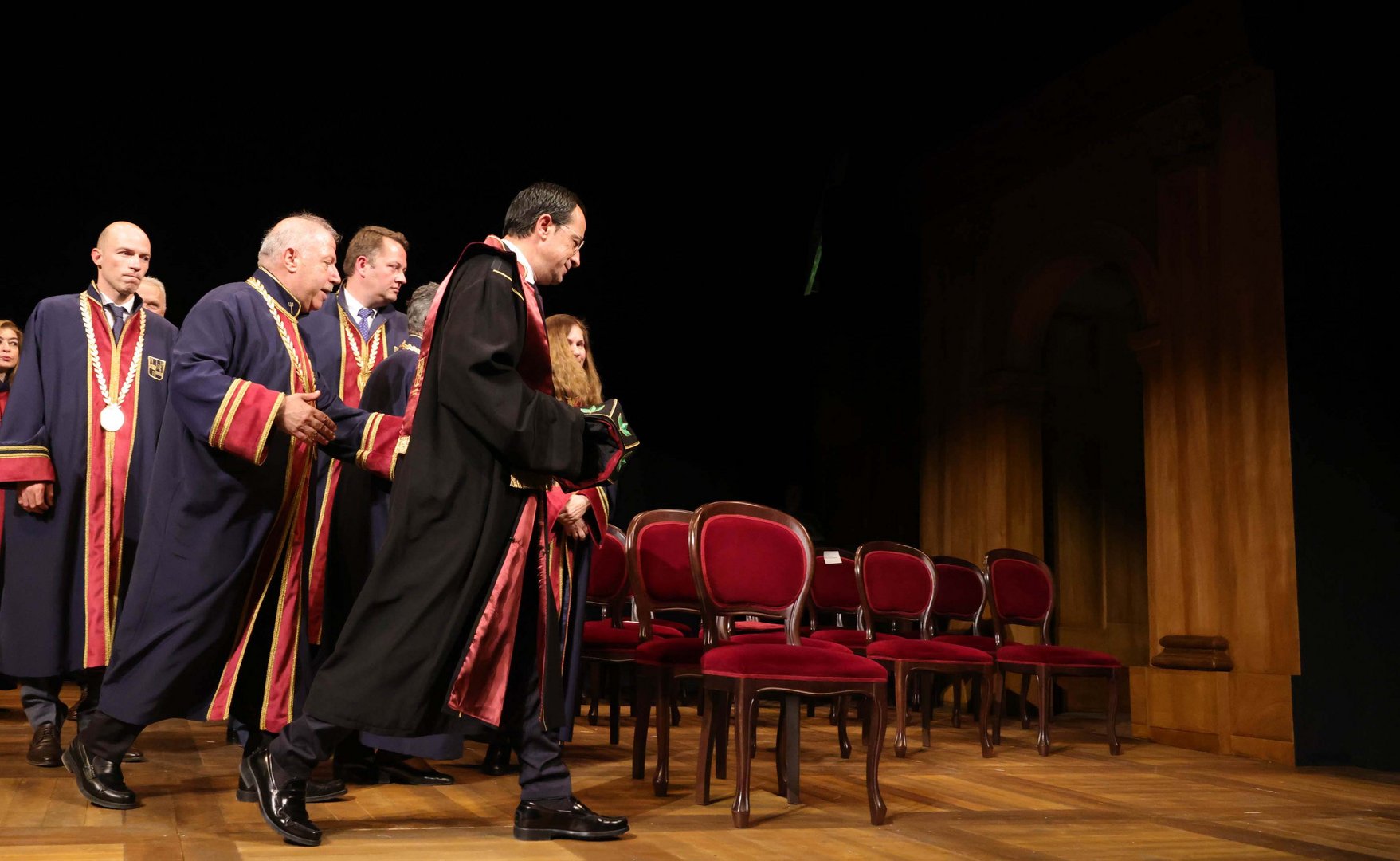President Nikos Christodoulides on Thursday released the names of his election campaign donors – but only after a discussion in parliament a day earlier had outed him as having effectively broken the law by not disclosing the information earlier.
On Thursday evening, the president published the list of donors – both corporations and individuals – along with the amounts and dates in each case.
The disclosure named his single largest donor as ‘Columbia Group of Companies’ – contributing €200,000 to Christodoulides’ campaign.
This also confirmed a story which daily Politis ran in January, alleging the transfer of €200,000 into Christodoulides’ personal bank account with Hellenic. The newspaper said the transfer had been made on July 27, 2022.
According to Christodoulides’ own disclosure on Thursday, the donation was dated July 29.
At the time of the Politis report, Christodoulides – still a candidate – declined comment.
The data provided by the president also shows other substantial amounts – such as €50,000 from the Cyprus Union of Shipowners, and the same amount from a company by the name of Synergon Group Ltd.
Donations from corporate entities included €30,000 from C.A. Papaellinas Ltd, €17,000 from Ch. Mylonas Quarries, and €16,000 from Kamlo Investments.
Several other contributions are above the €10,000 mark.
Under the ‘private individuals’ category, the biggest donor to Christodoulides was a person named as Constantonos Cleanthous – who gave €198,500 to the cause.
A certain Athanasios Ktorides donated €50,000 in total – there were two separate entries for this, one for €30,000, the other €20,000.
Christodoulides’ official campaign website had featured a donations button. Back in May of 2022, the candidate himself said that “any member of the public can donate anywhere from €10 to €1,000 if he or she desires.”
Christodoulides and his team had projected the image of a campaign being crowd-funded by small donations.
The data published on Thursday – featuring some heavy hitters – suggests otherwise.
Total ‘small donations’ from the public through banks and PayPal came to some €109,000.
Moreover, it appears the president was forced to make the disclosures after public pressure. On Wednesday, at the House ethics committee, MPs were discussing a bill drafted by Disy which would mandate the naming of all donors to presidential candidates.
But during the course of the discussion, it emerged that such a law already exists.
On April 11, and leaving it literally to the last moment, Christodoulides formally filed to the Chief Returning Office his election campaign expenses and revenues, but without providing any details. In the filing, he named neither his corporate nor individual donors.
By law, presidential candidates must make public their campaign spending within two months at the most from the date of the election.
The runoff ballot was held on February 12 – meaning Christodoulides barely met the deadline for submission of campaign expenses to the Chief Returning Officer.
But it turns out that Christodoulides still ran afoul of the law governing the disclosure of campaign donations.
That’s because presidential candidates must publish – in at least two dailies or on their campaign website – the names of their donors prior to making the filing to the Chief Returning Officer.
Christodoulides had published his campaign finances on his website (www.christodoulides2023.com), but did not provide the names of donors as required.
The law is explicit, in that it requires candidates to name their donors, even where a donation is in specie.
The law, which also applies to members of parliament, provides for a one-time fine of €500 where a candidate does not disclose the donors info on time, and €50 per every continued day of non-compliance.
Other than not making these disclosures on time, Christodoulides’ filing to the Chief Returning Officer showed he had gone over the €1 million limit on campaign spending.
His campaign had spent €1,019,356 – or €19,000 above the limit.
The other two main presidential candidates – Andreas Mavroyiannis and Averof Neophytou – had likewise exceeded the spending limit.
It’s understood that any amounts over and above the permitted €1 million must be returned to the state.
Excesses in relation to election campaign spending are neither a misdemeanour nor a criminal offence – rather, the candidate must return any excess amount as a ‘penalty’.







Click here to change your cookie preferences